I met Nile Rodgers as we were putting the first issue of SPIN together. We were introduced by our mutual (and still) friend Robert Drake, the great sound engineer. We became instant buddies. We later discovered we were born on the same day, in the same hospital, St. Vincent’s in lower Manhattan. Three years apart, but, still…
Nile is that rare musical genius who never stops creating, innovating, never resting on his now considerable pile of laurels. When he’s not making his own music, he’s producing others and half his credits would be double almost anyone else’s. He’s produced hit records for a Pantheon of greats from Diana Ross, David Bowie and Madonna to Sister Sledge, Debbie Harry, Mick Jagger, Laurie Anderson, The Thompson Twins, and Southside Johnny.
More from Spin:
- Fuubutsushi Comes Alive
- Deep Cut Friday: “Kill All Your Friends” by My Chemical Romance
- Deftones To Deliver Their ‘Private Music’ Next Month
Take a dart and throw it at music history and you’ll probably hit an album, or chart topping song, produced or written by Nile. And it’ll be great.
He is not a formula guy. He has the best ears (and probably, depending on how one might be able to classify this) the best fingers in music, from his distinctive bass playing to working the mixing board.
He grew up in a racially mixed and intellectually charged home in New York’s Greenwich Village in the ‘50s, in the neighborhood and time of the Beat Generation, Bob Dylan playing on Bleecker Street, and rock ‘n roll and hippiedom flowering simultaneously in that uniquely progressive, nourishing environment.
In 1972, at 20 years old, he co-founded, with Bernard Edwards, The Big Apple Band, which you haven’t heard of but which became Chic, which you very much have heard of. Chic defined the sophisticated side of disco but it’s a testament to their musical excellence that they are not defined by disco, despite having one of the ultimate hits, “Le Freak”, that was number one on the disco charts — and the R&B and pop charts at the same time.
Recently Nile hooked up with the luxury group Aman to create Amanyara, a villa resort in Turks and Caicos that is an exquisite accommodation and state-of-the-art recording studio.
“I went to Amanpuri, the one in the horrible disaster with the tsunami, in the early days. As soon as I walk onto the property, I see David Bowie and Michael Hutchence. I’m like, OK, I guess I can get into this. After three or four days, I’m bored to tears. All of our girlfriends were having the time of their lives.
“I said to Adrian Zecha, who started Aman, can I build an Aman with a recording studio? The people who can afford it are typically rock stars. He went, ‘No, don’t you understand? The word Aman means peace. You’re not supposed to come and work.’ I was like, ‘Adrian, we can’t help it.’ You say to yourself, I got to work to keep affording this. It’s just our work ethic. Anyway, it’s taken me 21 years to finally finish this.”
Morgan Freeman once said on 60 Minutes, “I don’t want Black History Month. You don’t have a White History Month.” He felt Black History was being ghettoized. How do you feel?
I sort of agree with him because the fact is that, to me, history is history. Black history is just history.
A year ago, I was in Davos, and I heard people talk about the relevance of indigenous wisdom. It was really interesting because the hundreds or thousands of years of doing things a certain way was knowledge that hadn’t necessarily migrated to the classrooms. I think that Black History Month is weird. It sort of makes it like we should only talk about our achievements for 28 days and, leap year, 29 days.
The Irish stole the banjo. The banjo is an African instrument, but when the slave ships came to Ireland, because that was part of the triangle, they would take the banjo, so Irish people knew how to play the banjo.
It’s just human history.
Why is America still racist?
It’s a very difficult question to answer because I come from a family where, basically, in my immediate family, I’m the only one who’s chocolate-colored. My mom called me Pudding Pie, like chocolate pudding. It got contracted to Pud.
When we used to take family pictures, they would see me. I would stand out, and they would say, he’s the only spot in the lot. Some of the people in my family were passing for white, even wrote white on job applications.
The slave owners that owned my family on my mother’s side were Irish and had plantations in Georgia. Of course, they have sex with the slaves. As you know, sometimes certain genes are dominant. Many of my family members really look white.
My great-grandmother always told her children to marry light because you’d be more accepted, not only by whites but by Blacks. When I was at the top of my career in the early part of my career and Chic was really happening, I remember going to parties on Martha’s Vineyard and people would stop me at the door just because of my color. I was like, whoa, what’s this? Then, thank God, some girl that I was dating would say, “He’s the guy from Chic, let him in.”
When I finally signed my deal with Diana Ross and Berry Gordy, Gordy initially did not believe in my work. I thought, finally, I’m with a Black company. This is going to be awesome. Berry was like, “This is not a Motown record. This is not a Diana Ross record.”
I said, “But Mr. Gordy, it’s just not an old Diana Ross record. It’s a new Diana Ross record.”
My attorney and my two brothers, who don’t look super Black, and I were telling stories of how many times either cops or random white guys with guns would stop us and ask us questions that we knew our lives depended upon.
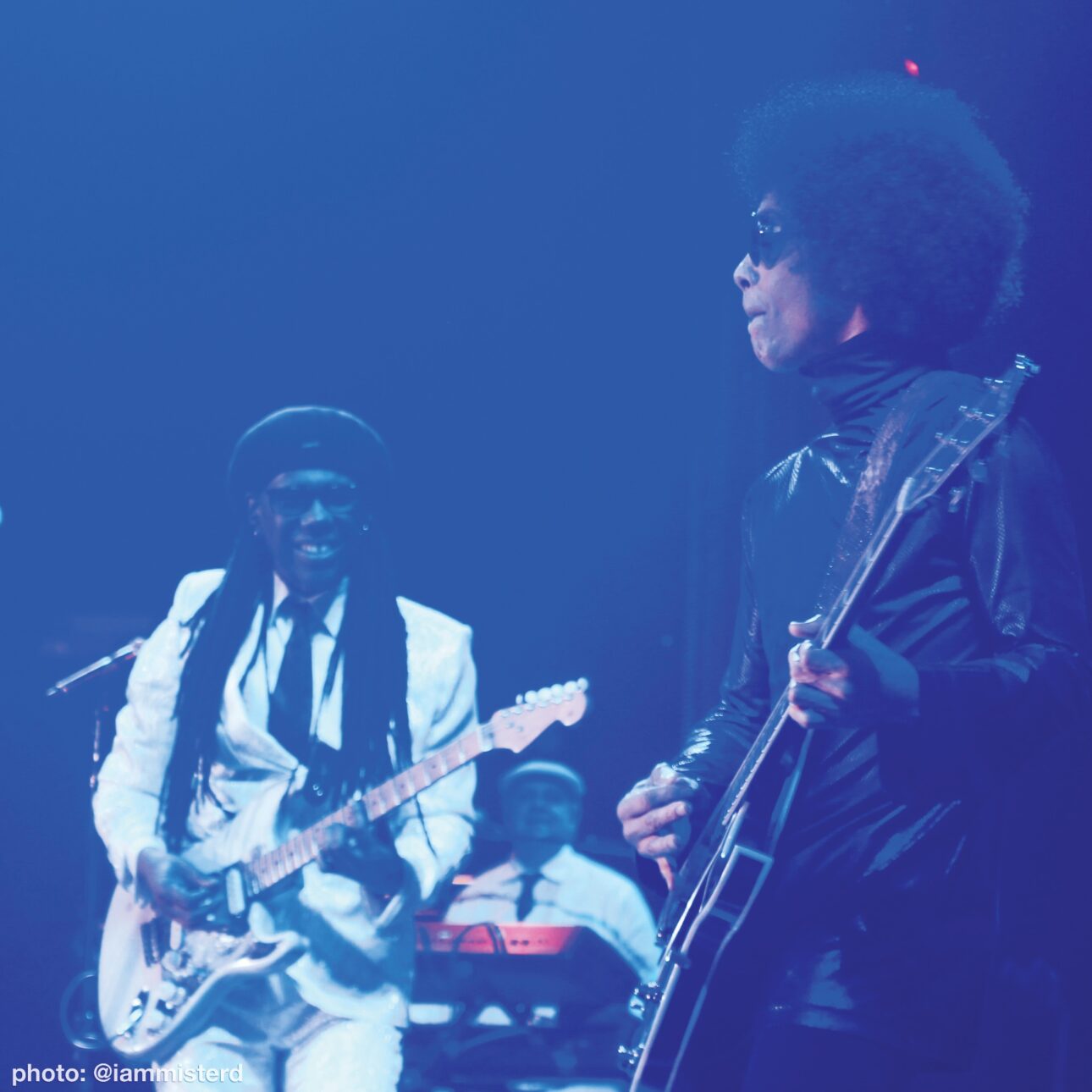
I was producing a jam band around the time Phish and all those guys were becoming popular. Their headquarters was in Vermont, a big college town. They gave me directions, this is before GPS. After driving for hours, the road signs started coming up in French. I said, I’m going to Quebec or Montreal. What’s happening here? I must have missed a turn. I was running out of gas, and I see the picture of the pump the next exit.
I go into this gas station. Now, my car is $100,000. It’s ridiculous. It’s yellow. I put my credit card in and the truck was filling up. As soon as I walked into this convenience store, obviously the woman pushed the panic button. I never even said a word to her because I was tired and I have diabetes. I was going back to the refrigerated section to figure out which soft drink I was going to get.
I got this huge, 28-gallon gas tank. I’m just taking my time looking at the stuff and these two cops walk in guns drawn, and they’re telling me to get on the ground.
I don’t steal, I don’t rob. I don’t hurt people. That’s just not who I am. My parents socialized me to be a nice guy, to care about people. I’m a grunge hippie. I’m a tree hugger. I’m thinking, they can’t possibly be talking to me. I look to the back to see who they’re telling to get on the ground.
All of a sudden, I realize they’re talking to me. The last thing I’m going to do is get on the ground. I’m thinking, if I’m going to get shot, they’re going to shoot me anyway. If I get on the ground, I’m really at their mercy. I calculate this all in a microsecond, because this kind of thing has happened to me many times in my life. The way that I usually get out of it is I use some absurd polysyllabic word that they have no idea what the hell I’m talking about. They think, oh, we don’t know what we’re getting into. I say something to make them laugh.
I turned around and I said, “Officers, you want me to get on the ground?” I was not drunk or high. I put on my best New York accent. I says, “So before I do so, would you like me to drop” — I knew this would get them — “the Diet Mountain Dew or the Diet Dr. Pepper?”
As soon as they heard the words diet, OK, he’s conscientious. He’s not eating pork chops or watermelon or whatever. Just whatever stereotypical thing they had in their head when they just saw a Black man. Now, they didn’t take into consideration that the car that was filling up was $100,000. They didn’t take into consideration that the only way it could be being filled up is either I had to put in a credit card or pay the woman.
Time they got there, she clearly wasn’t afraid. So the temperature started to normalize, and they started to get cool. They gave me a police escort to the town and to the college all the way there.
Why is America racist? I don’t know. I think you would be better off asking a white person.
The kids who are bullies, tougher than you, pick on you, those same guys, when I made it and became the local hero in Little Italy, [in New York City], they’re all like my boys now. They’re like, “Man, how you doing?” I’m like, “What? You’re the guy who used to chase me every day.”
They never caught me. They never beat me up. They tried, but they just couldn’t. I was a very fast runner.
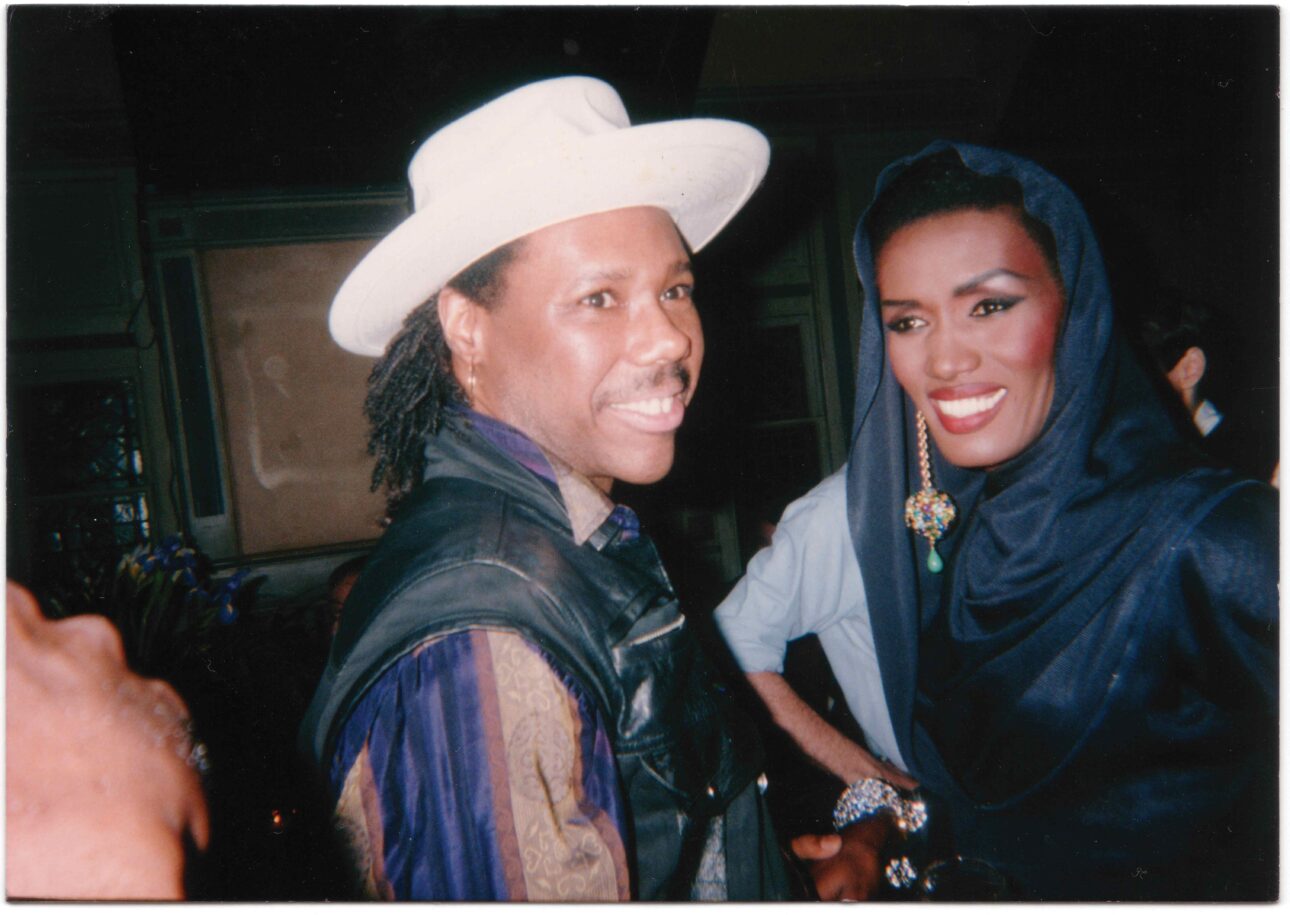
I think it’s the fading sunset of white dominance in America. When we were growing up, it was white America and everybody else was a minority. Today, white people are either statistically or very close to statistically the minority.
Right, but Bob, let me just stop you for a second. That may be true as far as numbers are concerned. Every single time I go to a new city and I see skyscrapers, I go, is there one building in this town that’s owned by a Black person or a woman? Every city has skyscrapers. Maybe white people at some point will be outnumbered, but as Chris Rock pointed out, white people are going, “We’re losing the country. We’re losing the country,” — then who the hell is winning?
My biological father is obviously Black, but the father who raised me was Jewish. He was a heroin addict and a beatnik, and he was cultured and he was brilliant and he was loving. He wanted to adopt all my mom’s children — all my brothers are half brothers. They all come from different men. I call it variation on a Mormon theme, because she’s the woman with all the guys.
All of my stepfathers are all buddies. They all like each other, but they were all madly in love with my mom. They were sophisticated. They were cool. They were hip. Being a Greenwich Village kid, I feel one of the luckiest guys in the world
My stepfather was white so they called him White Bobby because, obviously, there were a bunch of Black Bobbys in town. Everybody was cool. There were tons and tons of queer people, and they were all just cool. It was all part of the Village. It was all part of that tribe. That tribalism was wonderful. They all had different jobs but somehow they would come together and be cool.
Your lifetime has spanned the life of rock and roll and its music offshoots. When was richest in that span artistically?
When I came home from school the day that my parents were playing A Love Supreme, and I heard John Coltrane’s voice for the first time. I couldn’t believe it. Coltrane was on this pedestal in my young life, not just because of Giant Steps but “Lazy Bird” and all these incredible tunes.
When I heard that album, it just knocked me out of my chair. That album was spiritual. It was clever. If I live to be 100, I could listen to that every day.
That’s not me being an intellectual. That’s me being a teenager. That’s me growing up in a household loaded with bebop. My mom loved vocal music, Nancy Wilson, Tina Turner. She loved Nina Simone. She loved Mel Tormé. She used to sit around and go, “God, listen to his intonation. It’s perfect.” She loved Tony Bennett.
When I was a kid and we’d have show and tell, everybody else would come to school with their GI Joe or whatever. I’d play Nancy Wilson. Kids would look at me, where’s this kid from, Mars? [laughs]
I grew up with some of the most innovative music and musicians that you could imagine. My love for Eric Dolphy is just unbelievable. I have transcribed Eric Dolphy stuff and played it on guitar, and it never does what Dolphy does, even though I have the notes right.
I think we all tend to relate to a period in our lives where it had the greatest impression on us. The feelings it brought us into contact with and also the romance around us, be it sexual or whatever. I talk to people that are really young. They feel that same way about hip-hop when they first heard somebody.
It wasn’t like Coltrane had the absolute greatest technical facility because I know other musicians that their chops were ridiculous. Coltrane’s interpretation, his spirituality, that thing, it just got to me. It spoke to my heart.
I felt similarly about the Doors song “The End.” I thought “The End” was the most incredible thing when I heard that. Now, yes, I was on acid. Yes, I get it. When I heard it after I wasn’t on acid, it still was amazing.
Do you remember John McLaughlin’s version of A Love Supreme?
Oh, come on. John McLaughlin is my man. I played with him quite a few times.
He and I have this sort of thing for each other that we really respect. He understands my harmonic knowledge, and his is probably just as great, if not better, but he understands how I apply it to pop music.
I was with John Mayer one day, and we decided, OK, you give me a record that changed your life, and I’ll give you a record that changed my life. He gave me Coldplay, and I gave him the Rolling Stones’ Their Satanic Majesties Request. I never knew that people think that record sucks. I’m like, are you kidding me? It is amazing.
That’s one of my two favorite Stones albums, and maybe my favorite. I thought it was actually way above their level.
It’s way beyond what normal Stones’ records are like.
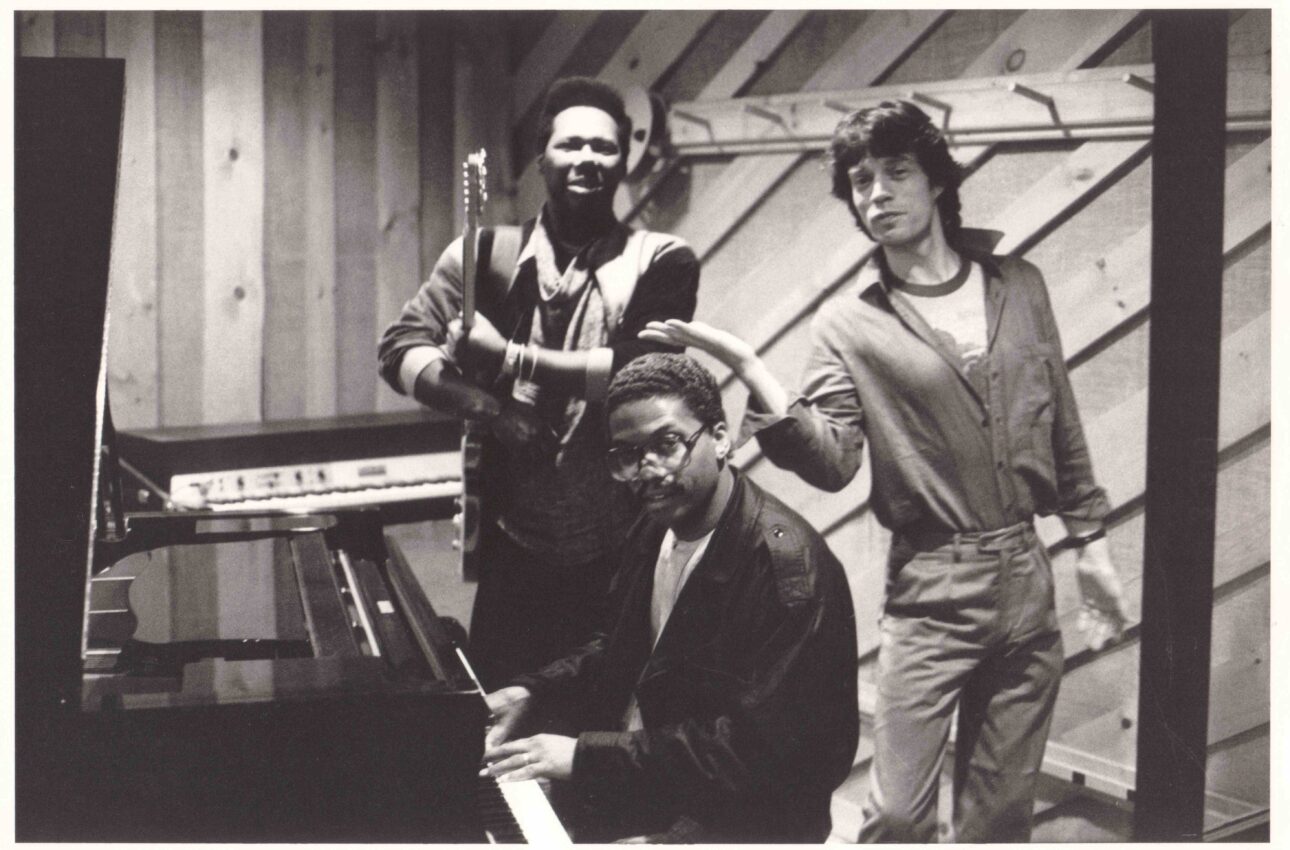
You’ve said that you welcome new technology after initially having resisted it. You’re very supportive of AI. Having said that, does music made with autotune, or even samplers back in the day, have the same soul as the music made without it?
It does if you’re of the age that that touches your heart.
To this day, we’re still a live band. I found out from friends who are front-of-house engineers, that probably 95% if not more of all artists [use click tracks], and I’m talking great players, great musicians, people who are my friends that I love, I’ve gone on stage with them, and I couldn’t believe I heard a click track in my head. I was like, “Dude, what’s going on here?” “Well, yes, because the strings and the horns are synced to this and that, and we need that for the bass and the subwoofer.” Wow, if I have a subwoofer, my man’s playing it.
That’s what we do, that’s just who I am. I won’t feel comfortable unless I’m doing that. I’m not saying that I’ve never lip-synced because that was the absolute restriction to be on a television show. They didn’t take a chance and blah, blah, blah. I’m not saying that I haven’t played parties where they want us to be in and out in 15 minutes, so we played a track, but still, guess what? We play live to the track. I actually just invent another part. Because we will never ever not play.
I put a record out with Kygo and I said, “You know what I want to do?” — because he had the EDM lick — “what if I played the same lick but on guitar, and it was all funky sounding. It was my tight bumpy thing and I do it twice, so I’m stereo wide, and you’re in the middle. I think that on an EDM record, no one’s ever heard that before.”
He said, “That sounds cool, let’s try it,” so I played it, and the next day, all I heard was, “That shit is great.” [laughs]
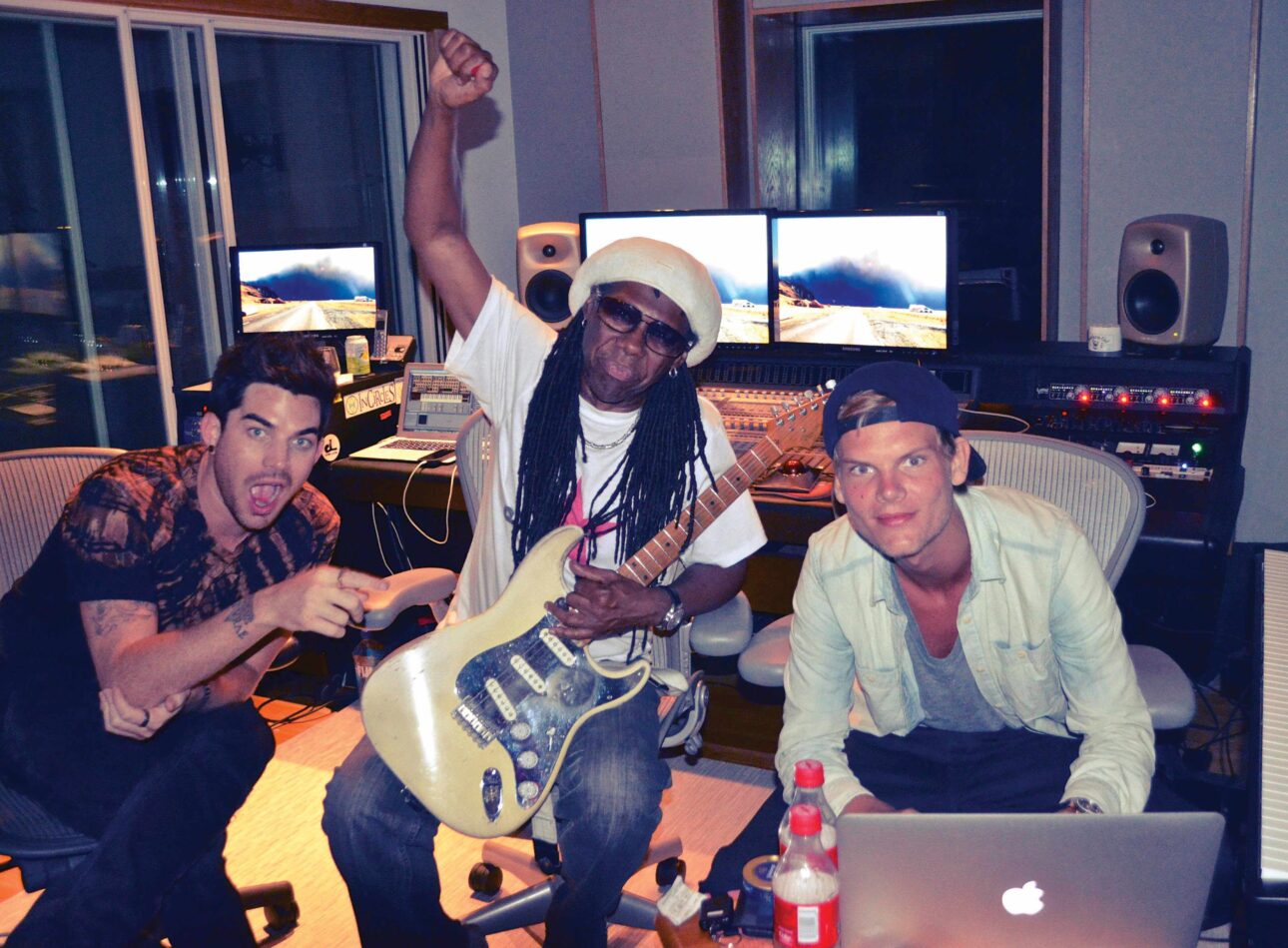
What I appreciate about drum machines and sampling — I love Prince, I couldn’t believe that he could have a hit record and not have bass on it. And he did it twice. The drum machine is an instrument. I wrote a song for Carly Simon, the first time I ever used a drum machine, a song called “Why”. My band was furious, so angry with me, and I said, “Listen to what I did. I turned the whole groove around.” The backbeat is in a different place, and Carly Simon sounds cool on it.
It’s an innovative record, it’s new. It was a way that I could have never made Tony [Thompson] play that, and I only thought of it because I had some new gadget to fool around with. It’s a musical record. It didn’t do anything in America, but in the UK, we play “Why” people completely go bananas.
I always believe that an artist should have the most colors on their palette that they could possibly have, that’s how I look at technology.
Did you know that there was a time that every time we made a record, we went out and bought a new piece of gear?
We didn’t even care what it was, or how it worked, we just bought one just because we wanted to see what it could do with our music. The other day I bought a loop machine, which I’ve always thought was ridiculous. I can’t figure out how to use it, it’s killing me. When I finally figured out a little bit of using it, I saw this thing that said reverse and I went, “Reverse?” I turned the loop around, and I went, “Oh shit. Oh my God.”
Then I started playing to it, and it was cool because it was this short backwards thing, like when you hear Hendrix take a solo, and it’s like the whole solo is back but it was just this one little backwards thing in the middle of me playing this funky chuck. I was like, “how cool is that?”
It was discovery. I was blown away because this was something new that I could make music with. When I first heard “Rapper’s Delight” and them ripping off our song [“Good Times”], I was upset. Then after I sat down with the Shockley brothers, who did Public Enemy, they said to me, “Nile, music is part of us. It’s part of our soul, but we don’t know music the way you know music. We can’t write a symphony. We can’t write charts. We don’t know what the chord changes are, but we got this drum machine that can sample and we can create music with it, even though we don’t know technically what we’re doing. We know it sounds good, and we fool around with it until it sounds good.”
I said, “Oh my God,” and that’s when I started calling it collage art.
Do you feel it’s an honor that people sample your music?
Now, I think it’s a huge, huge honor. I think that because I look at them as artists, that I have to respect their interpretation. Just because it’s not what I would do, doesn’t mean that it’s any less artistic because times change. When I was a kid, I loved Cab Calloway, most of my friends didn’t, but I loved it. Did that make me smarter? No, that’s what I heard. I liked it. It was great. I loved him talking about reefer, man, and my family were heroin addicts, so I got it, and was like, “Whoa, this is awesome.”
Man, you couldn’t do that on a pop record. Let me hear The Temptations sing about reefer, that record will never come out.
They couldn’t talk about smoking weed until maybe a certain time had passed. The thing is that art changes and artists change because the influences around them are different. I played Coachella with Debbie Harry. We had this new collective. It wasn’t the old bebop jazz guys that I grew up with. There were these new people that were using the colors on their palette in a different way, this thing that was called punk rock. Well, I was in a punk band. We were playing punk music before there was something called punk rock.
We were called Street Punk. It was me, a guy named Charlie Davidmann. I remember going to his house — he lived in a private house, so we could practice. Most musicians in Manhattan, we’d have to go to schools or find some centers. We used to pay off a guy at Brandeis High School so we could play and practice in the high school after the kids were dismissed.
Everything had to be muted. I used to play underneath my bed. I was playing a flute, and that was loud. That’s how artists develop, which goes back to the beginning of this series of questions, that’s why there shouldn’t be Black Music Month or Black History Month because you’re creating your history all your life, all year long. Based on where you live, based on what the conditions are, if you’re an artist, and it’s inside you, if you’re a writer, and it’s inside you, you’ll be under the covers writing in the dark.
I love it when I’m playing guitar and people think that I’m just playing the same thing over and over again. I remember the first time I heard “Get Lucky” after I played on it. I was in Ibiza, and this DJ said, “Hey, I have the new Daft Punk record. Have you heard it?” I said, “No, I haven’t heard the record finished, but I had a great time playing on it.”
He plays “Get Lucky”. He gives me a guitar and says, “Hey, do you want to play along?” I’m in a room full of people. It could have been embarrassing, but it wasn’t because I loved hearing the finished product, I thought it was great, but everybody kept wondering why I wasn’t playing along. Somebody yelled from the back of the room, “It’s only four chords,” and I thought to myself, “Wow, that’s what you hear, huh?” [laughter]
I always say that my guitar playing is like the right hand of the piano, that’s how I play guitar, so when these guys scream that from the back of the room, I couldn’t help but say, “That’s what the fuck you hear?” You just hear [vocalizing the guitar riff], you don’t hear me going [vocalizing].
That’s on the Daft Punk record?
Random Access Memories, their last record. I’m the only composer who’s got three songs on the album. That’s something I’m pretty proud of.
You said you got so many gold and platinum records you started leaving them at the office.
I honestly say that with a huge amount of humility, and shock, and awe, because I promise you when I was sitting on my bed writing “Everybody Dance”, all I wanted to have was one hit record, and I thought that that would be it. I was so proud because it has jazz chord changes, but the melody is so simple. “Everybody dance doo, doo, doo, doo, clap your hands, clap your hands.”
I remember when I first started composing for Chic, and I was going and hanging in the old jazz clubs that I used to work in, and Harold Mabern walked up to me one day, great jazz pianist, after I wrote the song “I Want Your Love”, and he patted me on the back. He said, “I hear what you’re doing, brother. I hear what you’re doing.” I felt like I’d arrived.
Can there ever be another Bowie now, a genius like him who had to have such an arc of a musical journey?
Of course. I was in Costa Rica with Deepak Chopra. We were having lunch, and I’m with his whole family, and then he just gets serious for a moment. Deepak says something to me that may be the last thing I think of on my deathbed: “Technology can be beautiful and diabolical, just like people.”
I thought to myself, “He’s absolutely right. I love technology because it does so much.”
What I meant was, David Bowie paid his dues. He played the pubs, the bars, the clubs, he opened for people, and he developed musically. Today, so much music is subsumed by technology, it starts and ends with technology.
Once again, art is, I won’t say a victim of time, but a forge of time and the current zeitgeist.
Who was the most exciting, brilliant, and inventive musician you have ever worked with, and who was second?
The most brilliant musician I ever worked with was my partner, Bernard Edwards, not only because he was such an amazing player, his instincts were incredible. It was unbelievable. He changed my life entirely, changed me from a snobbish jazz guy into a person who wanted to make music for the masses and make people happy. I was just listening to some score I’d written. It’s big orchestral stuff, and I noticed that I write scores like I’m writing songs. I want you to remember them. I want you to be able to sing it. [laughs]
I was listening to this piece of music and honestly, this is not egotistical, this is just factual, I went, “Wow, that’s really good.” [laughs] I had a great experience with this brilliant director, Matthew Vaughn, and we were talking about how films have rhythm, they have timing.
John Landis did the Michael Jackson Thriller stuff and American Werewolf in London and Blues Brothers and all sorts of great films, and he said to me, “Nile, I always hate it when people say ‘silent movies’. There was never a silent movie.” Whenever you went to see the cinema in the old days, there was somebody in the front of the theater playing music to go with the film. Movies need music, music helps the movie move along.
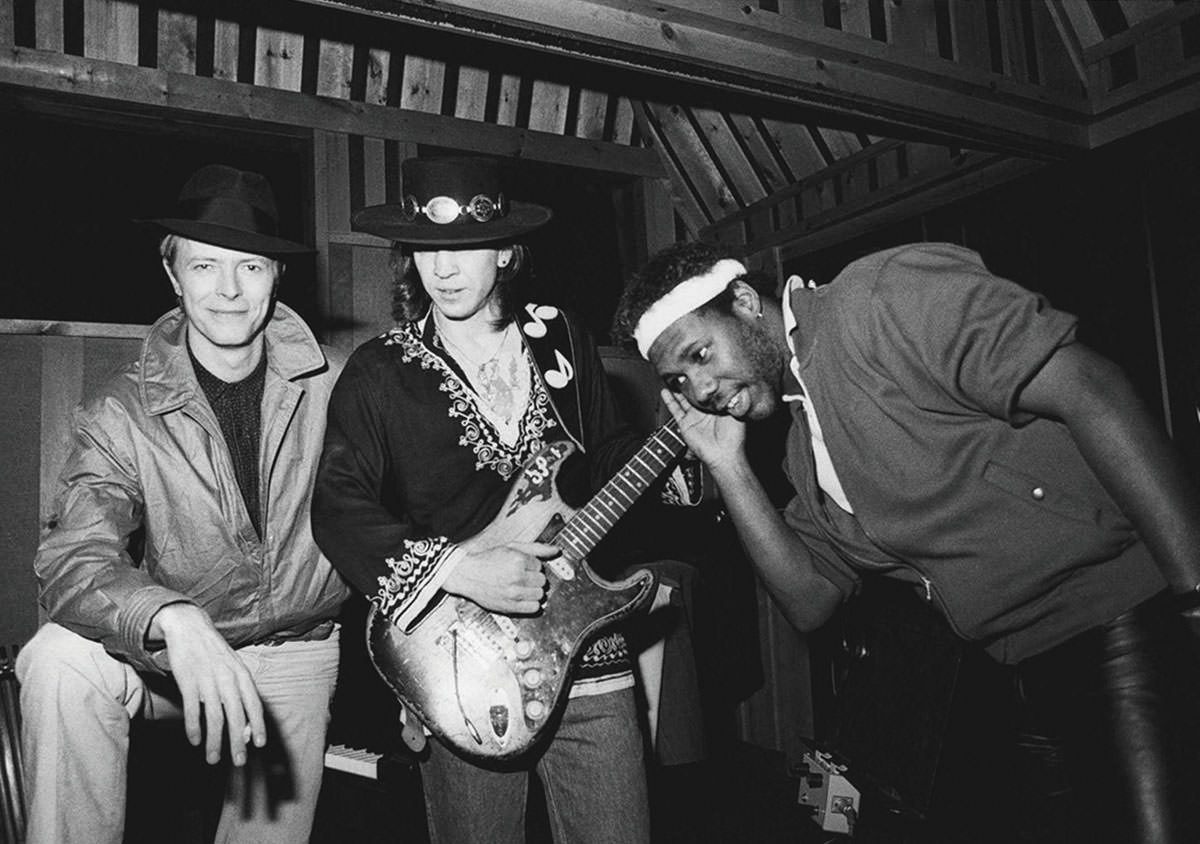
So who’s the second most inventive and brilliant musician?
Wow, so I just have to say the way they made me feel.
I used to call Bowie — and he hated this — the Picasso of music. I said, “You don’t look at the world like I do.” But the person who made me feel the most artistic was Peter Gabriel.
We’ve never actually had a real hit together, but everything that we did together was awesome. The first thing was called “Walk Through The Fire” for a film, Against All Odds. It was smoking. Then we did another movie called Gremlins, and I was setting up the microphone and trying to capture the spirit of an album that he had done, take some of that vibe and go to another level. I said, “Hey, Peter, how did you get that vocal sound?” He said, “I just turned on everything in the room.”
“What do you mean?”
He says, “Every piece of outboard gear, just turn it all on at one time.” He started singing, and I said, “It sounds like Peter Gabriel!”
Steve Winwood is another one. I have a series of photos [of] me, Steve Winwood and Todd Rundgren, who’s a damn genius by the way. Unsung hero of rock and roll music and technology, a brilliant, brilliant man. We were doing an album for the photographer, Lynn Goldsmith. It was very arty and really cool, and I loved making records like that. I love making these avant-garde records that actually made a lot of sense.
I love artists like St. Vincent. Like Bowie. I love people who make records like that. I love Kendrick Lamar. I think he’s amazing. That level of genius, I just adore.
I remember when I first heard Maxwell singing “This Woman’s Work”, to this day it makes me cry. Two songs that make me cry every time I hear them are “This Woman’s Work” and Luther [Vandross] singing “A House Is Not a Home”.
I went to Luther’s last concert. I went to ask him to sing on my charity record, which he did.
To see our running list of the top 100 greatest rock stars of all time, click here.



